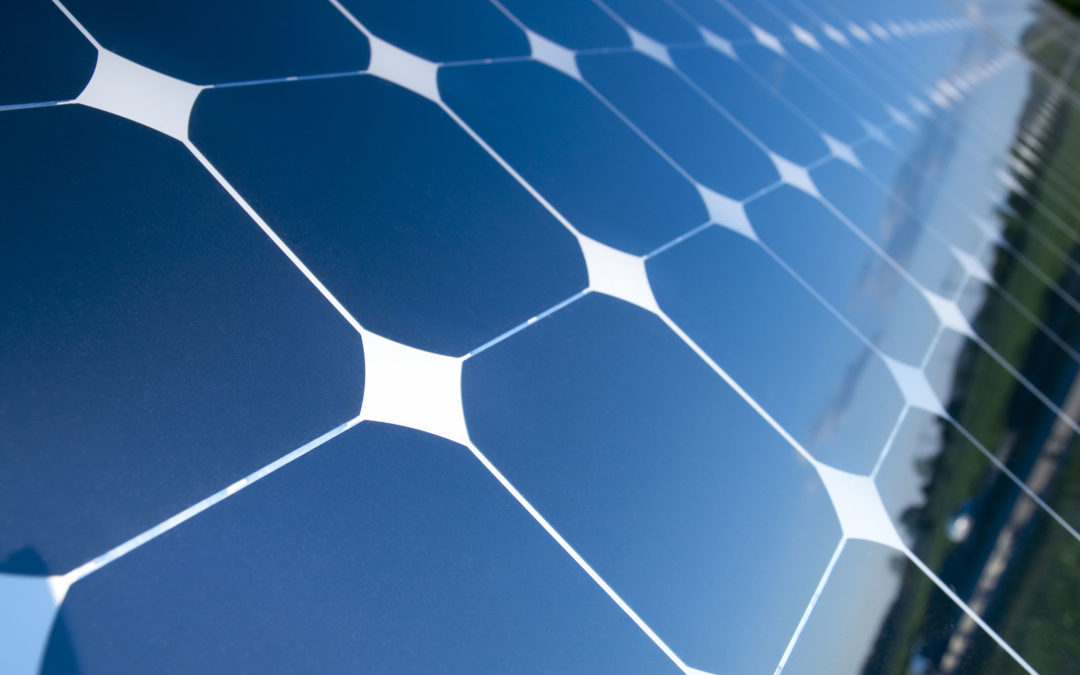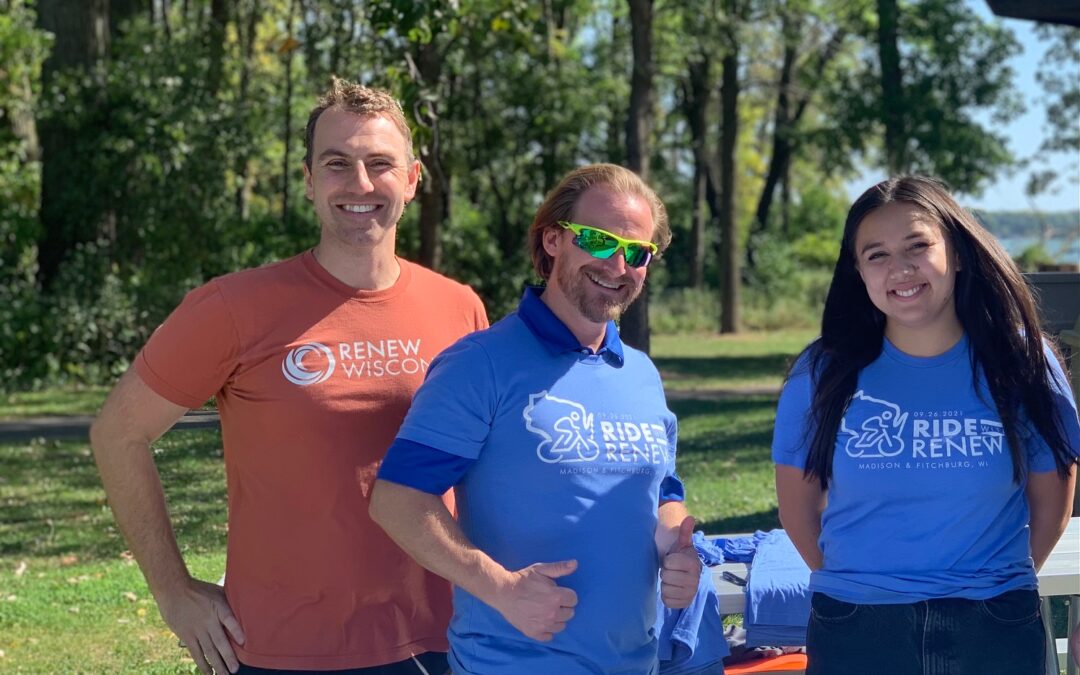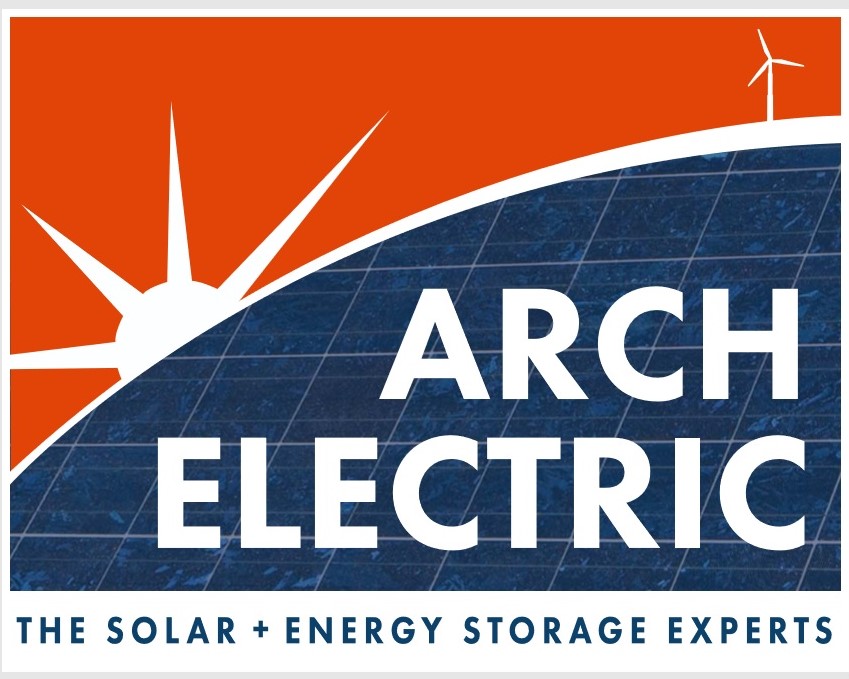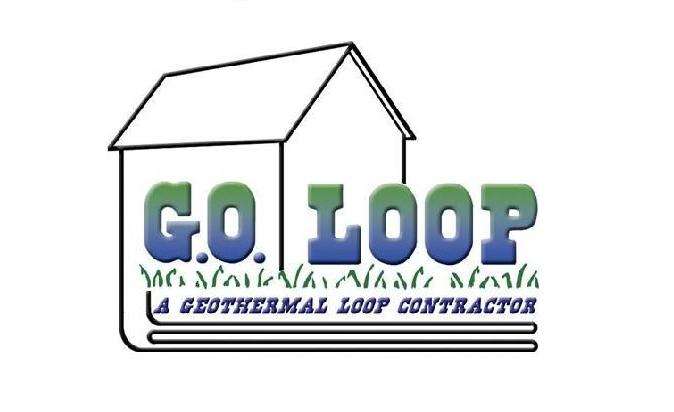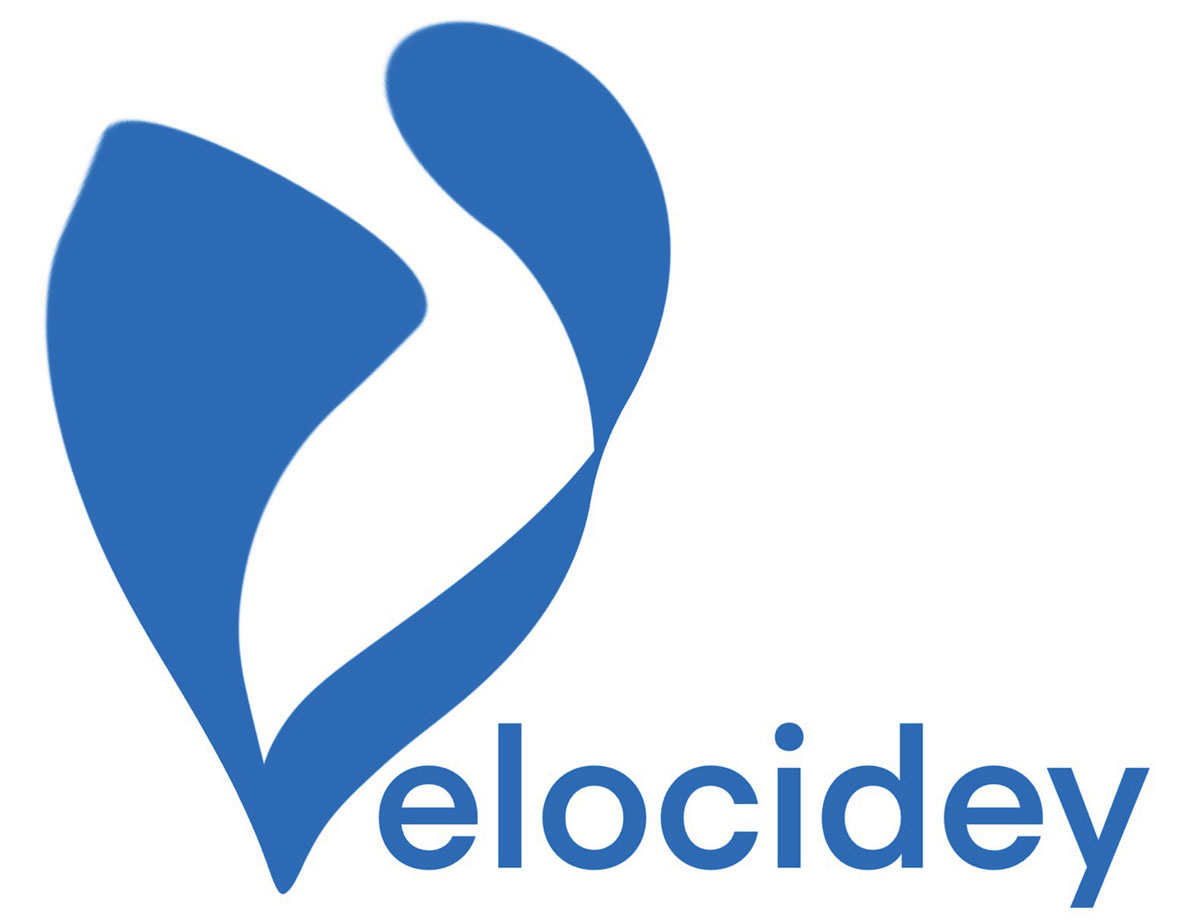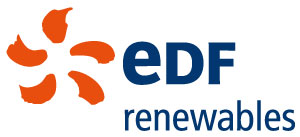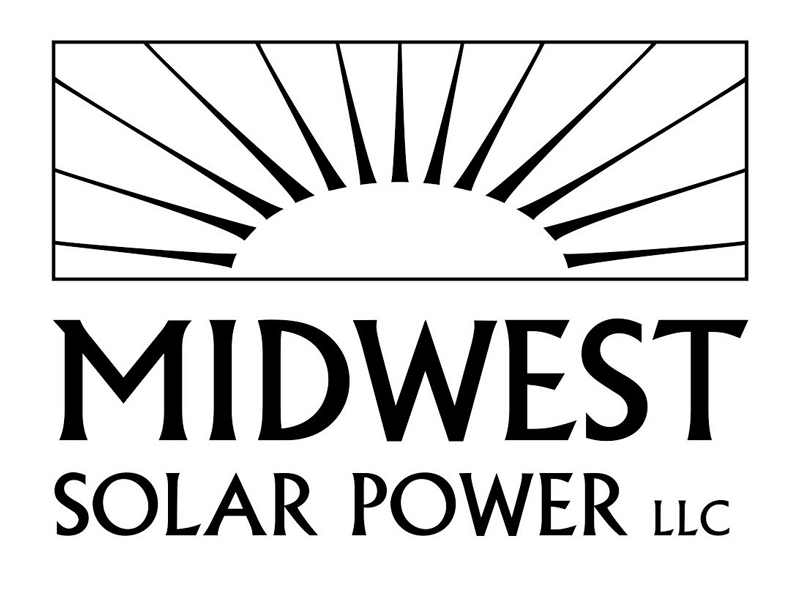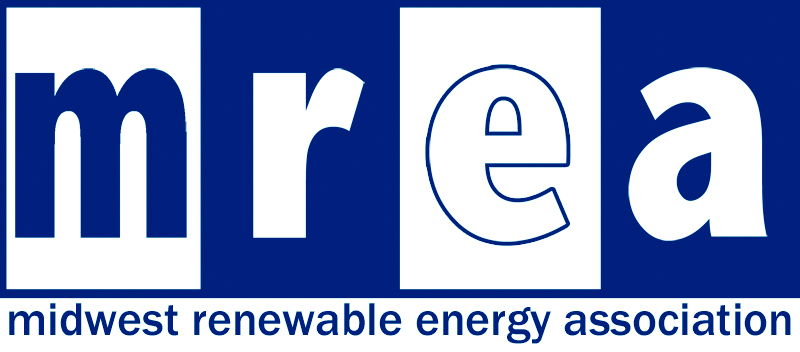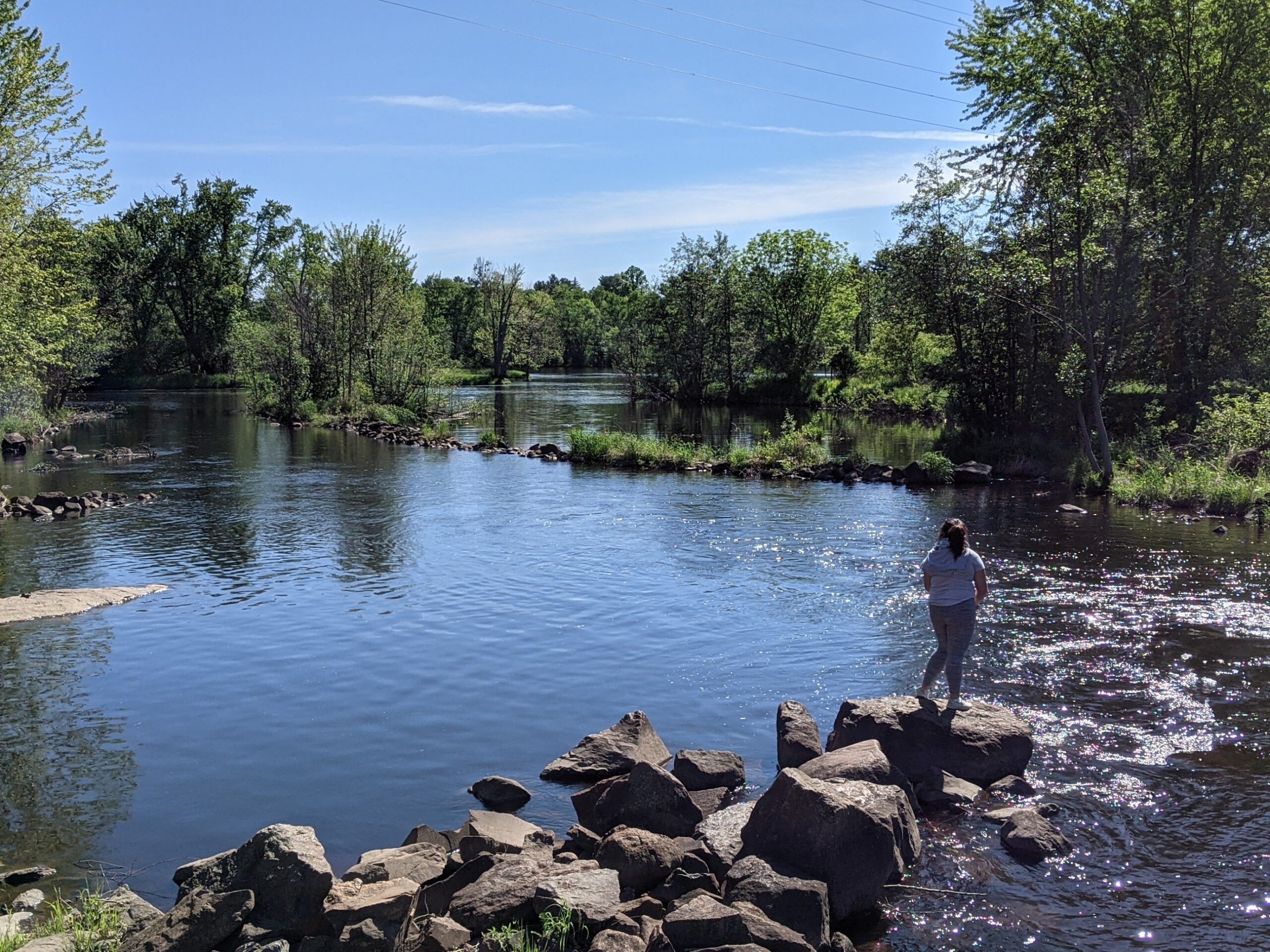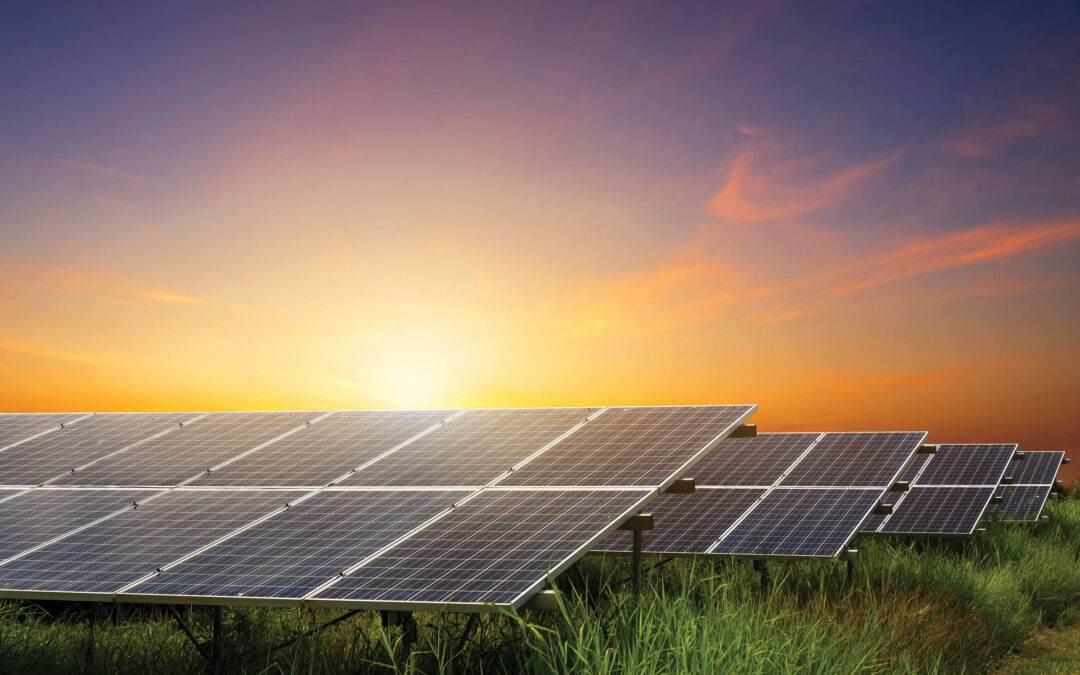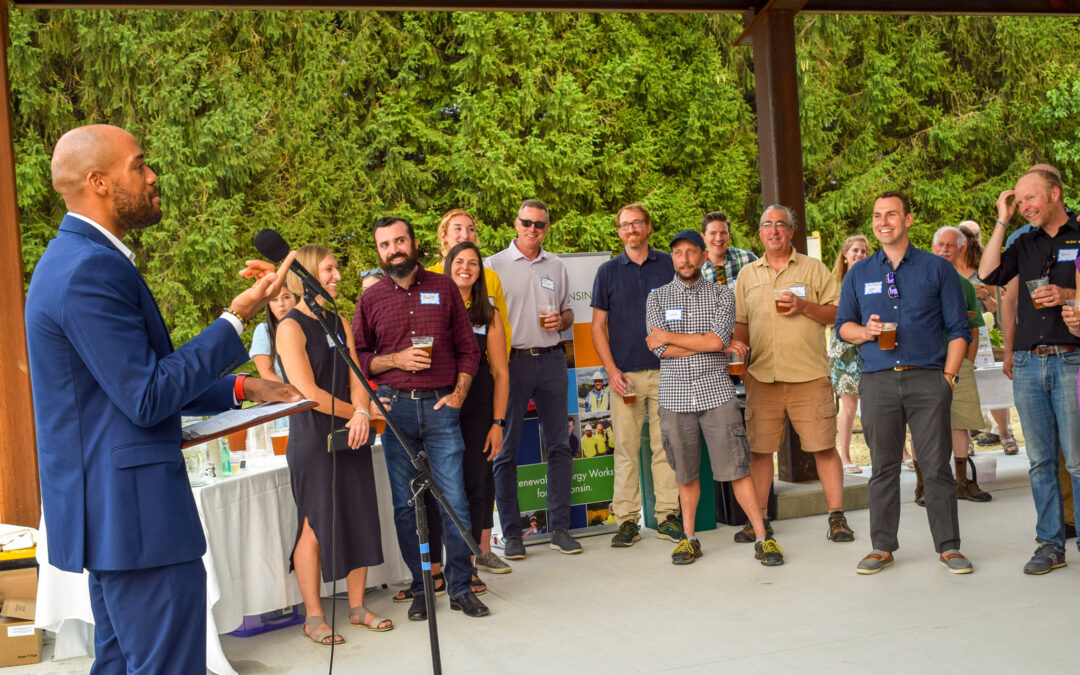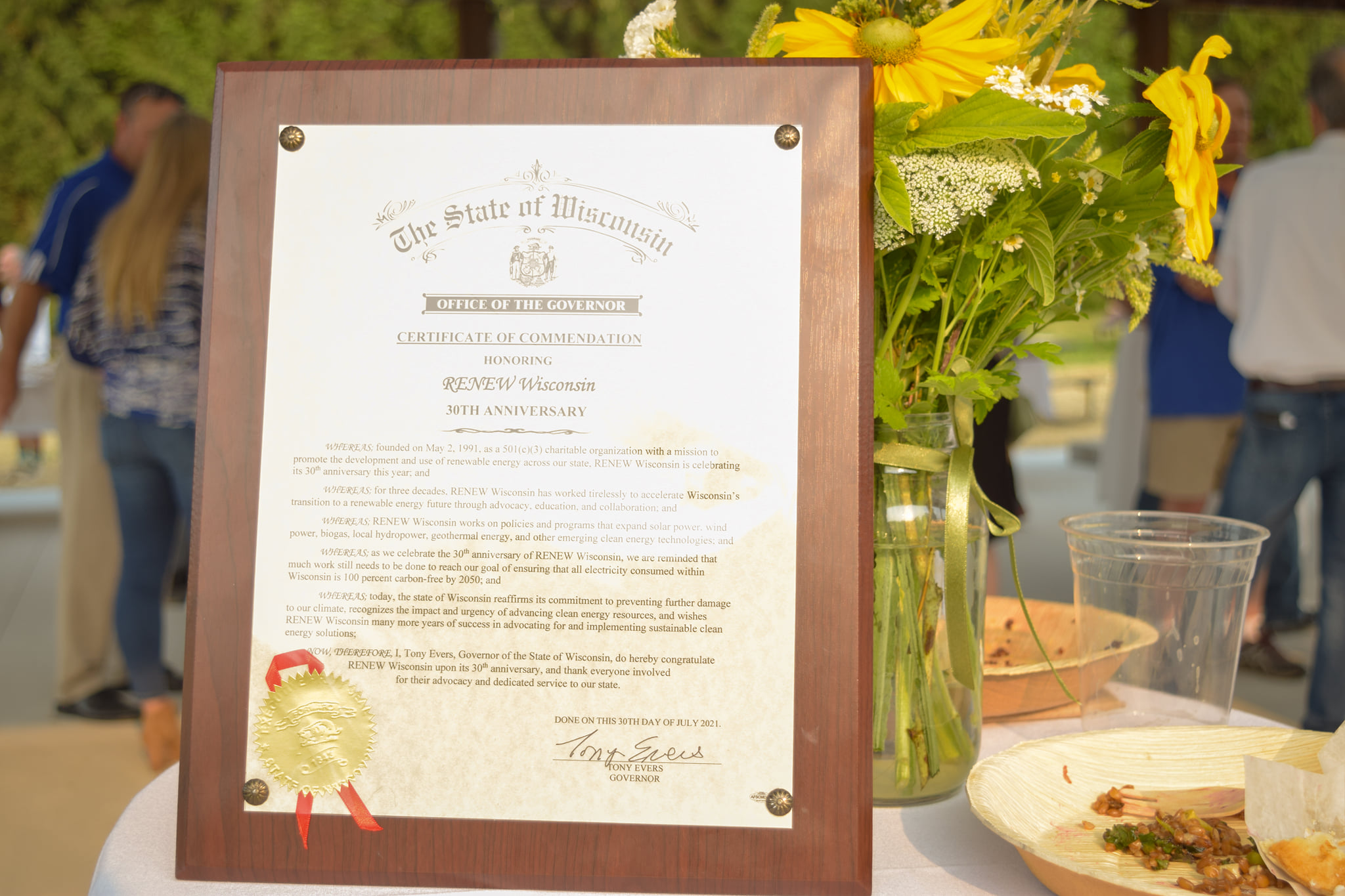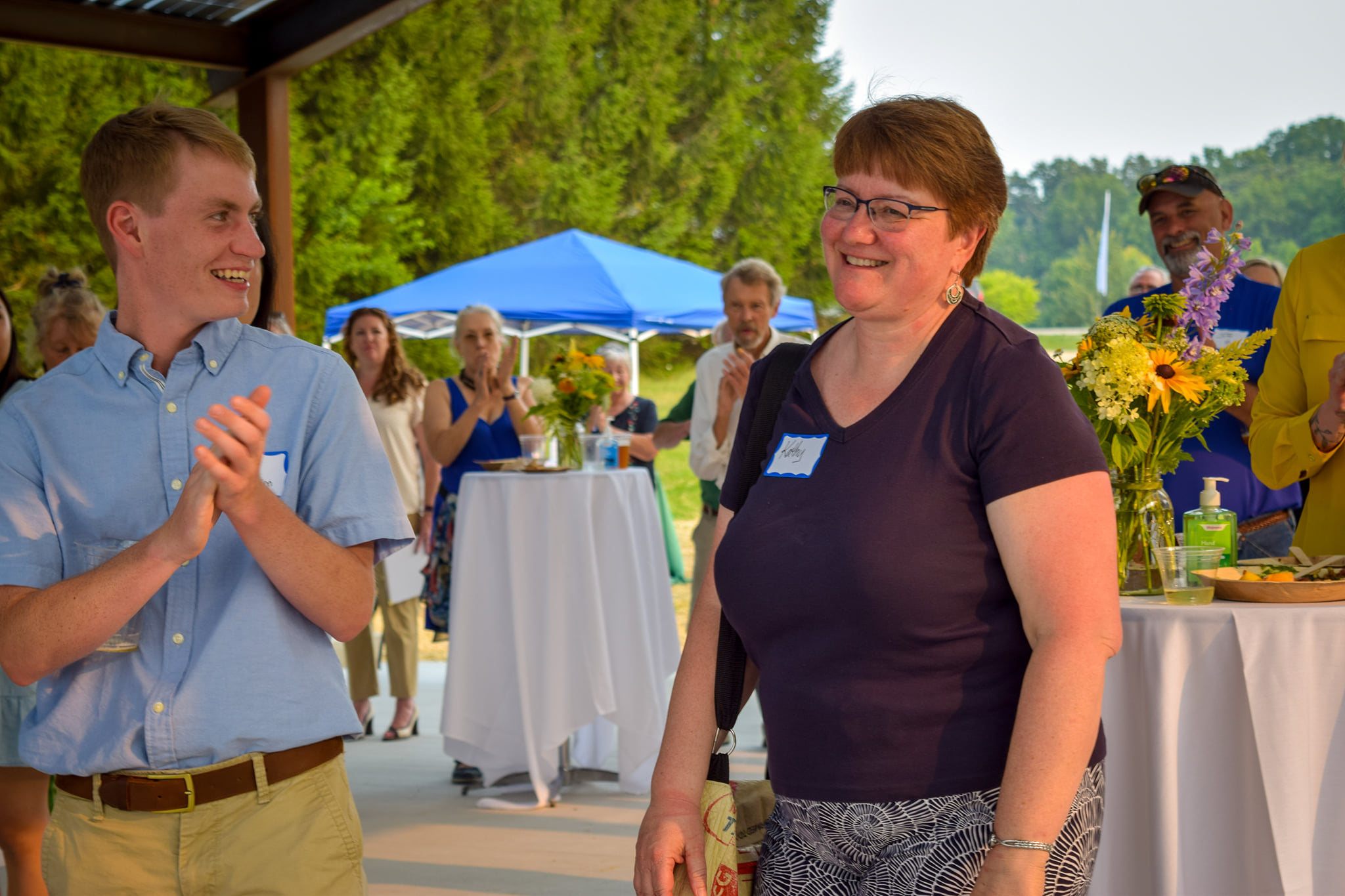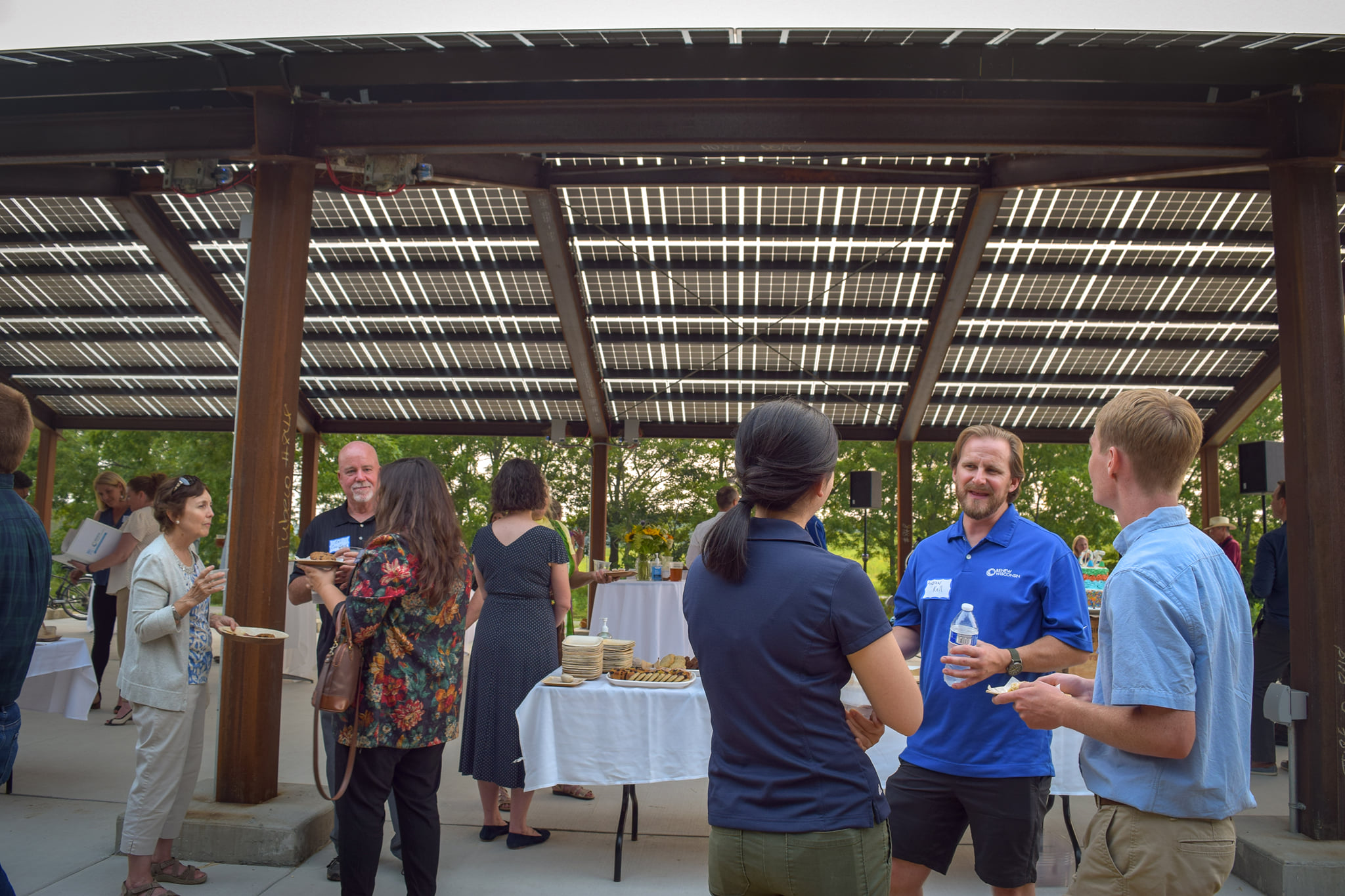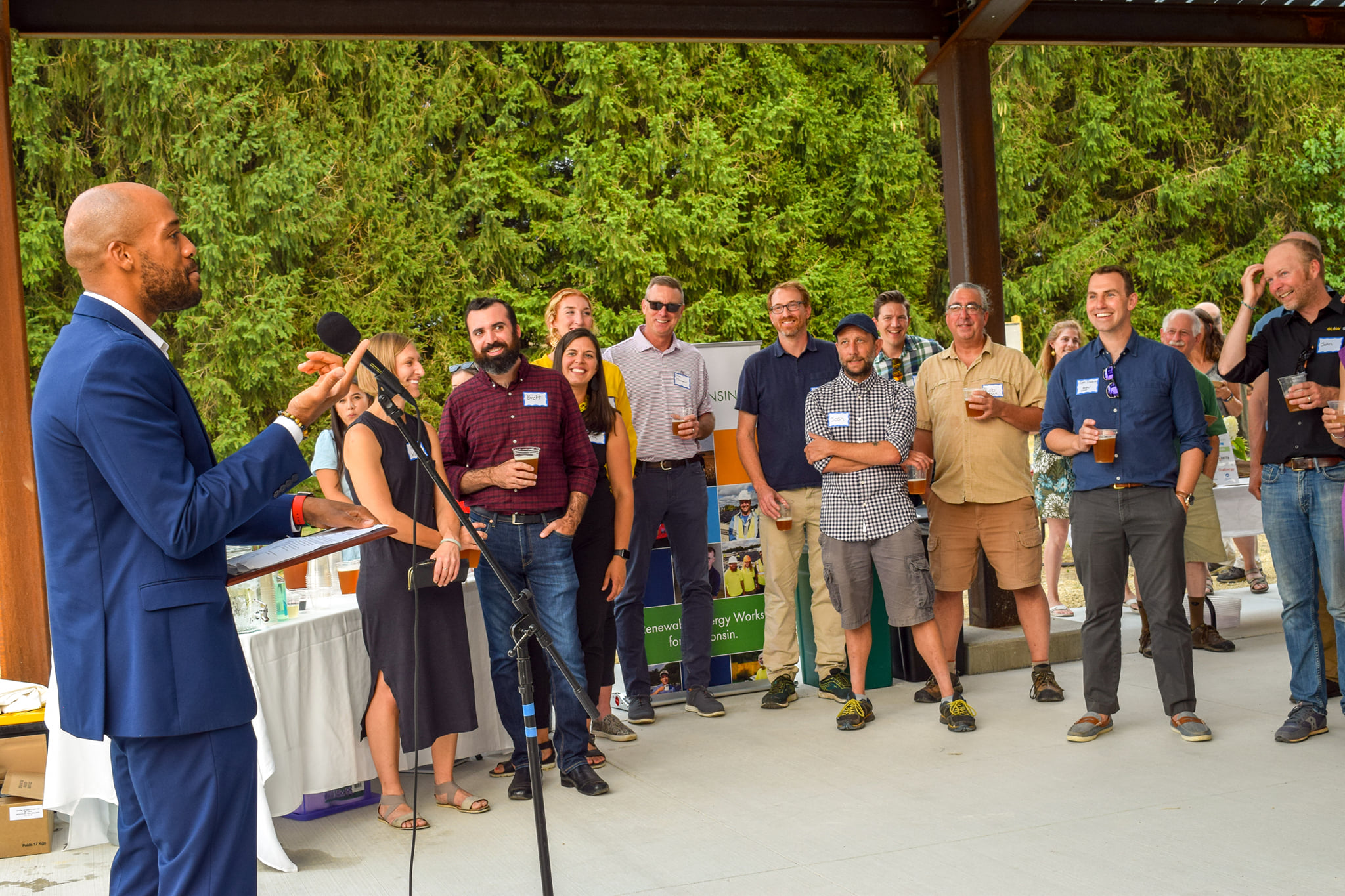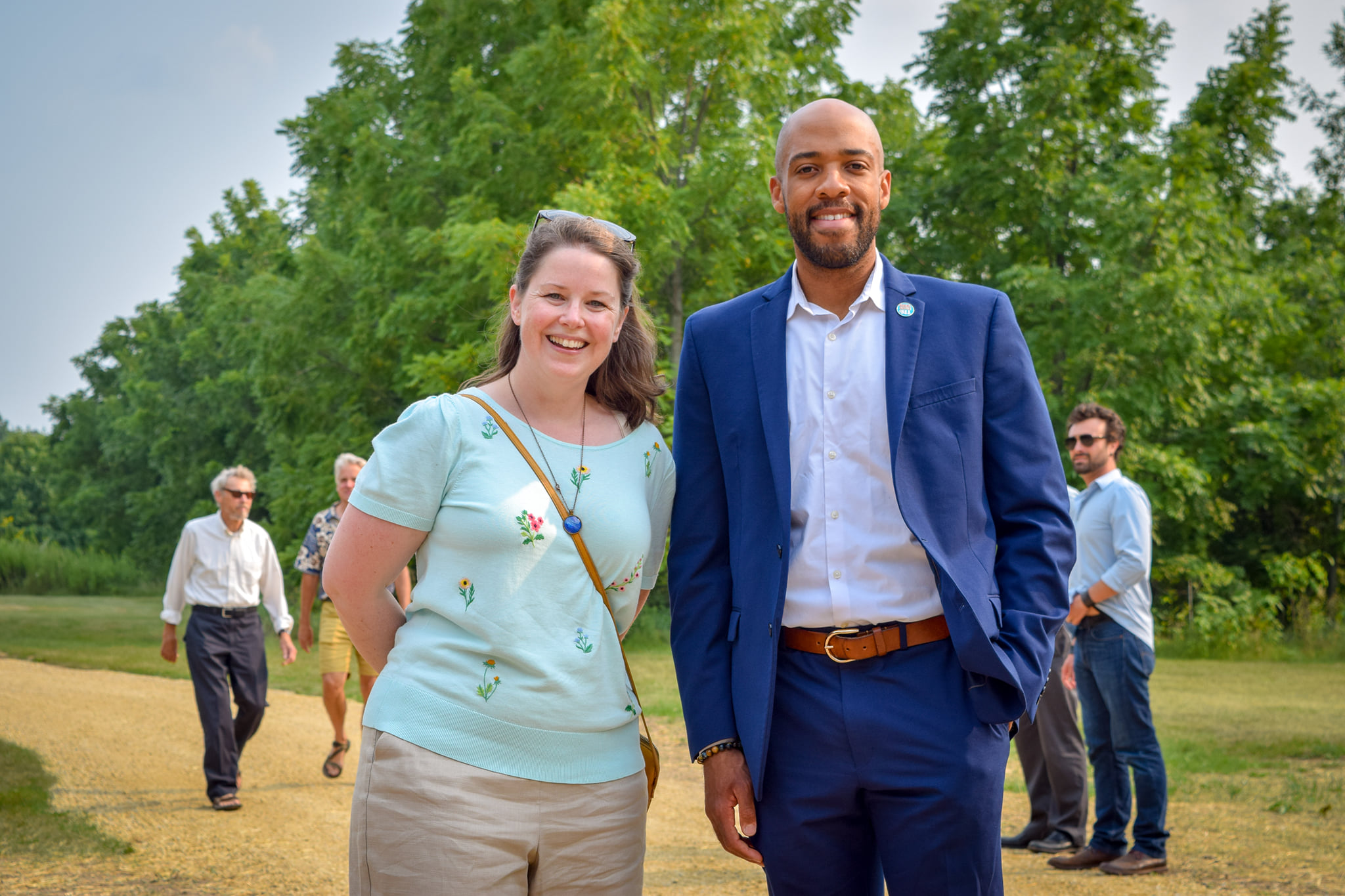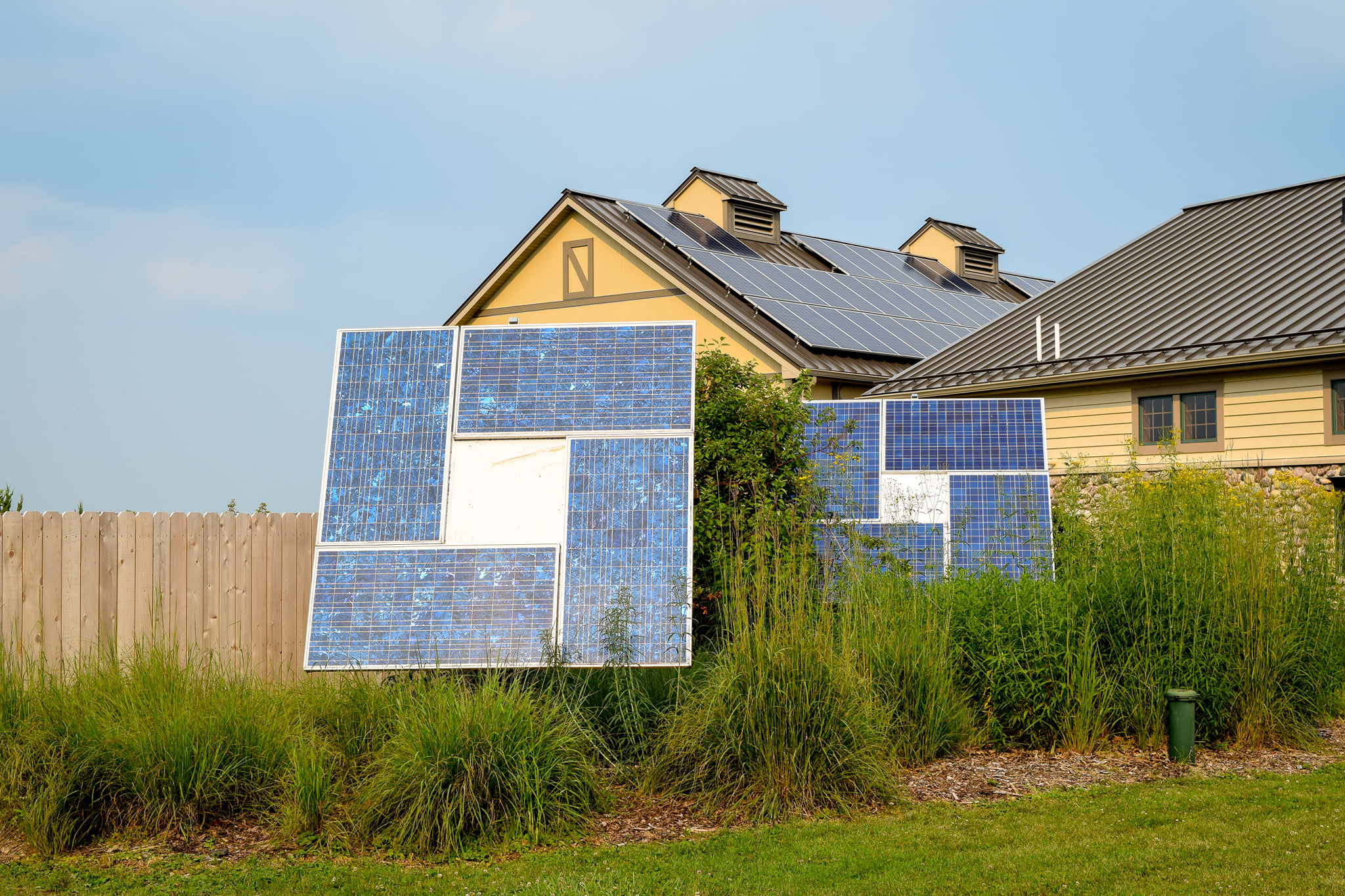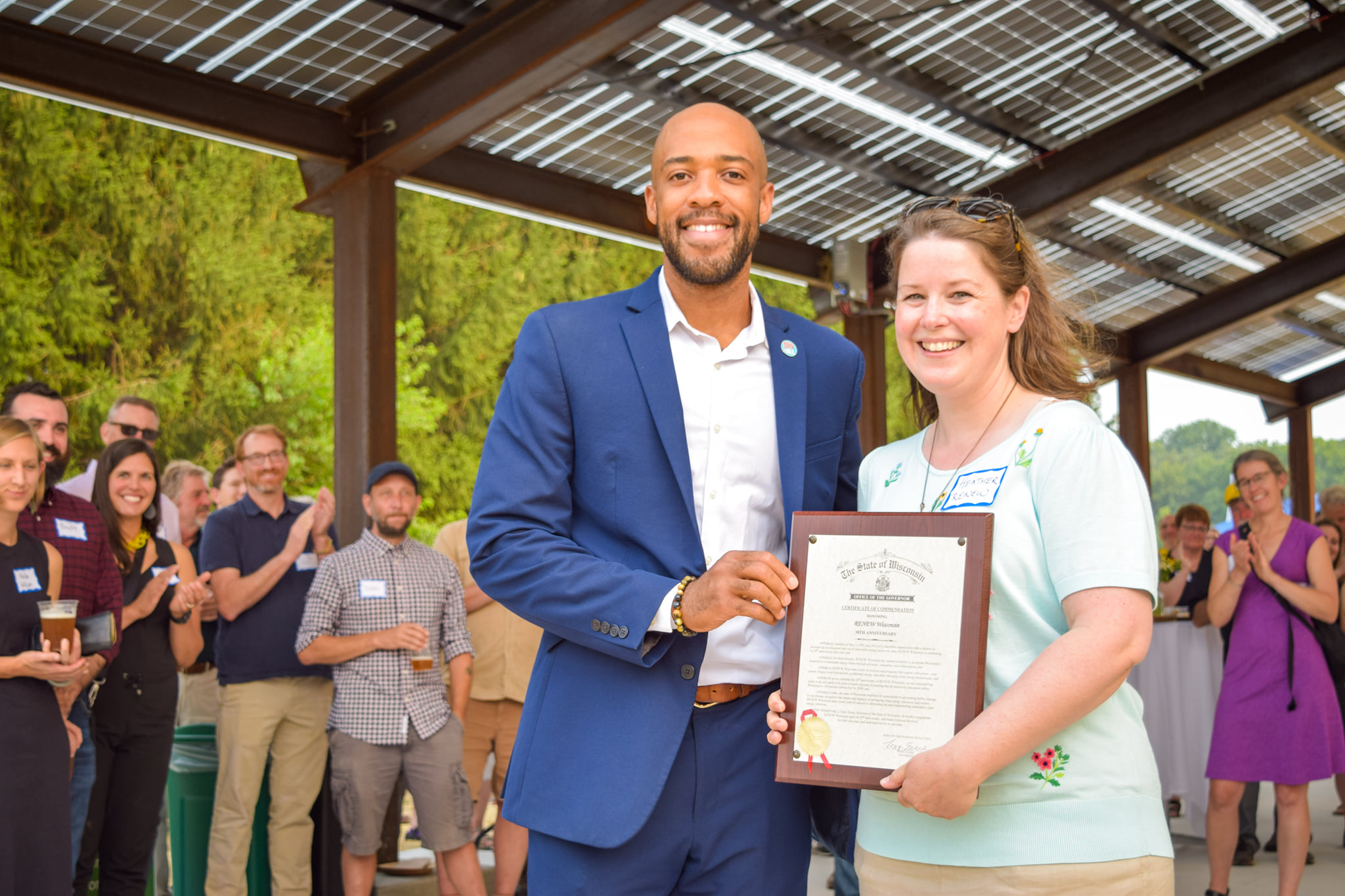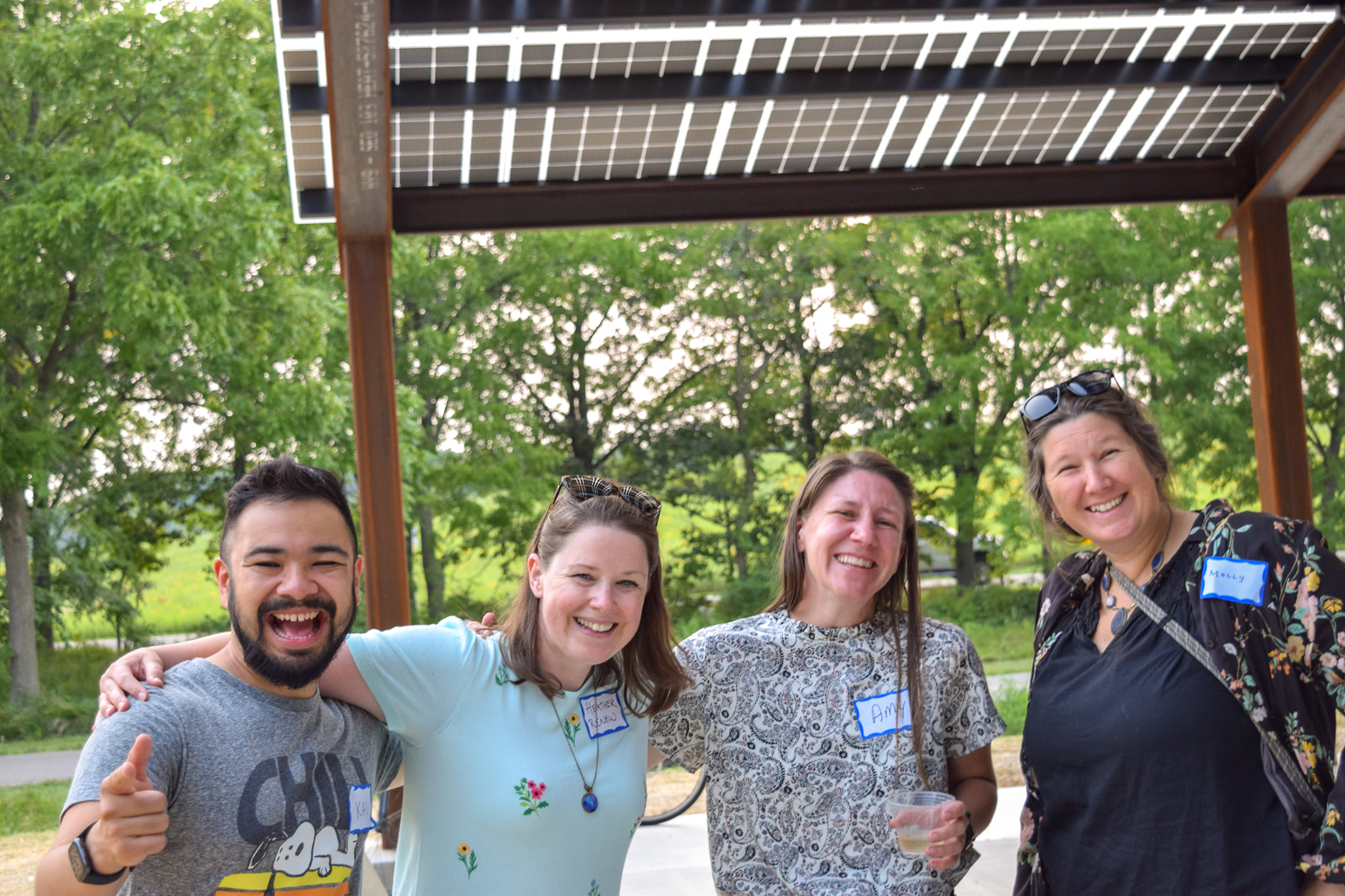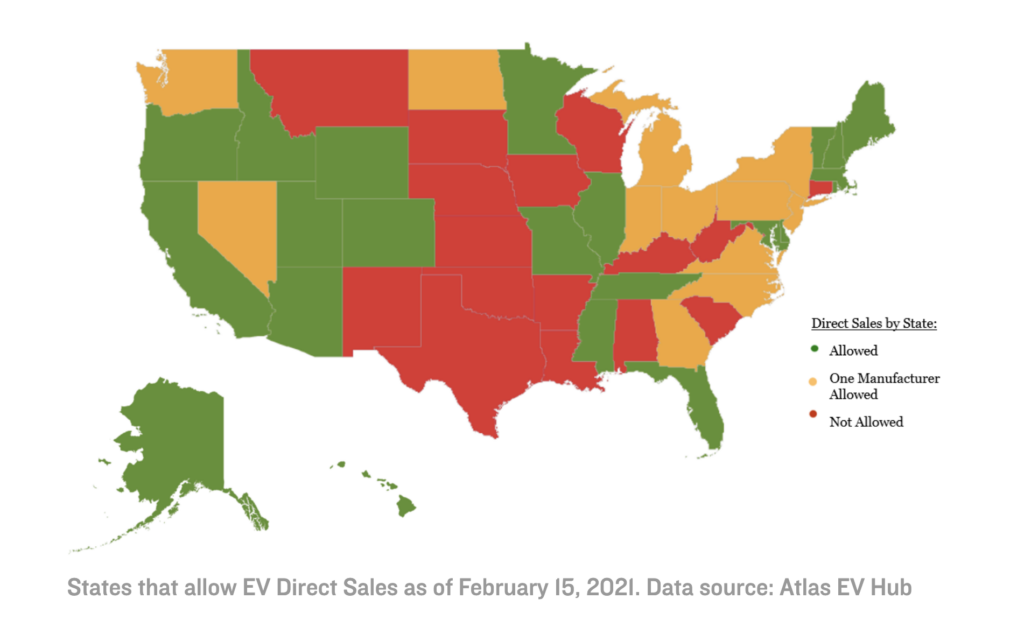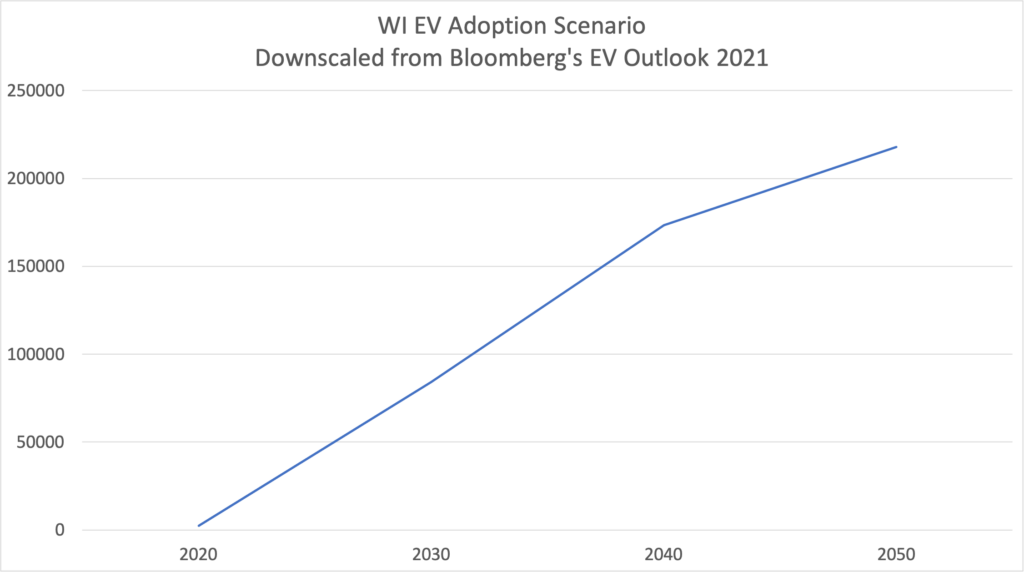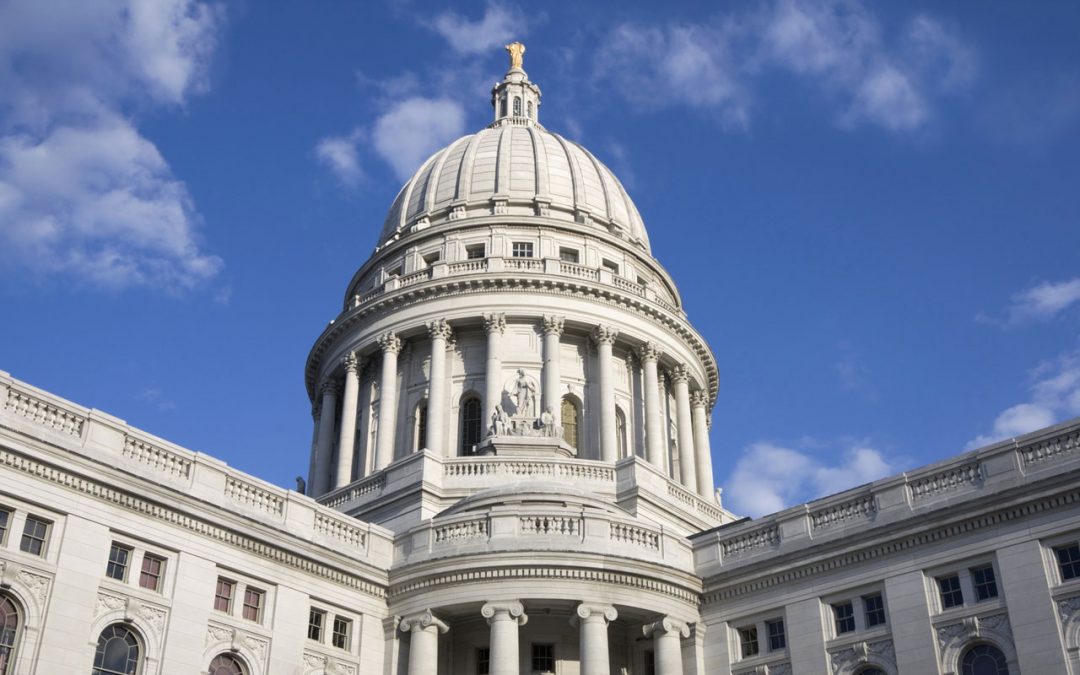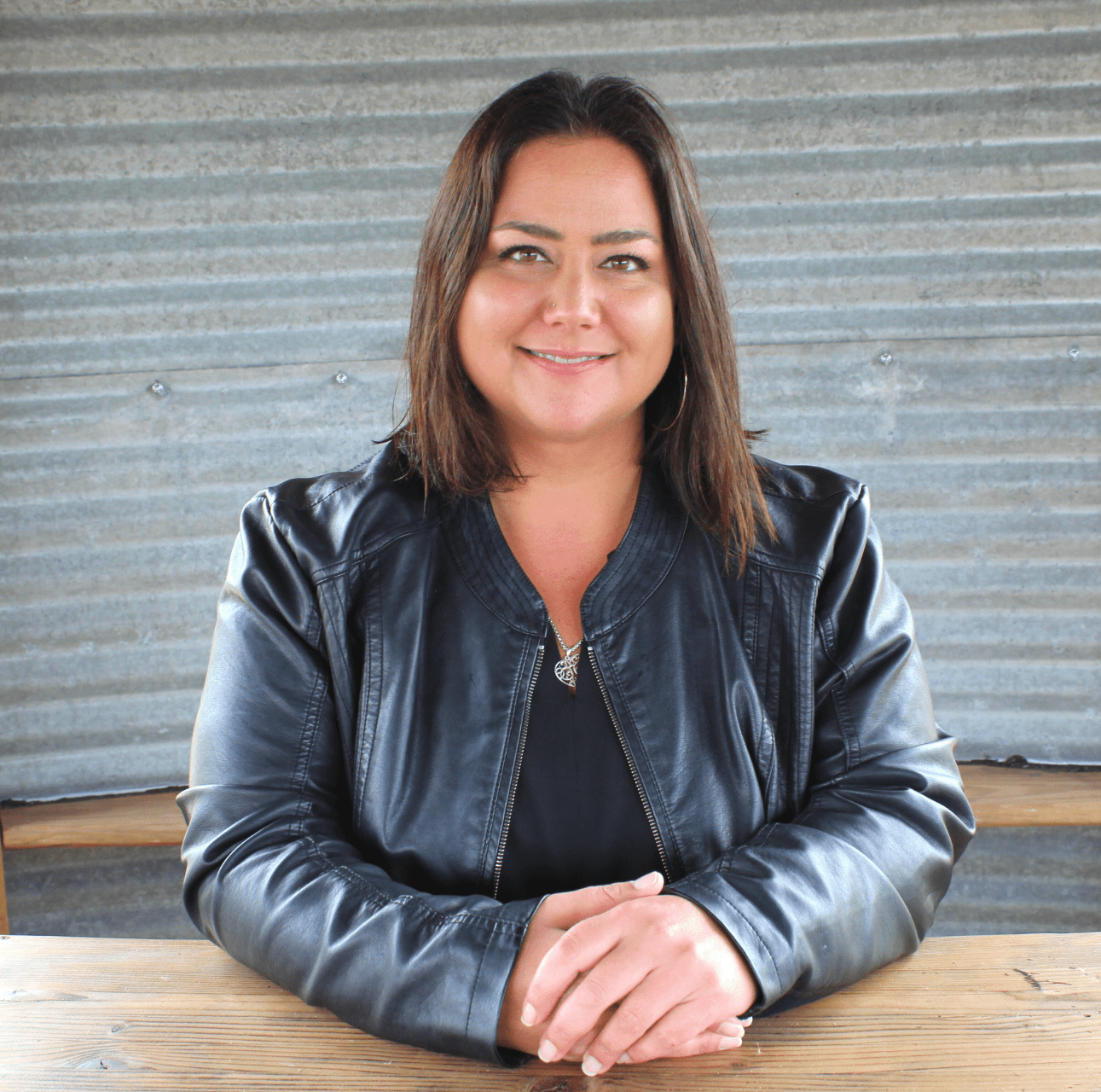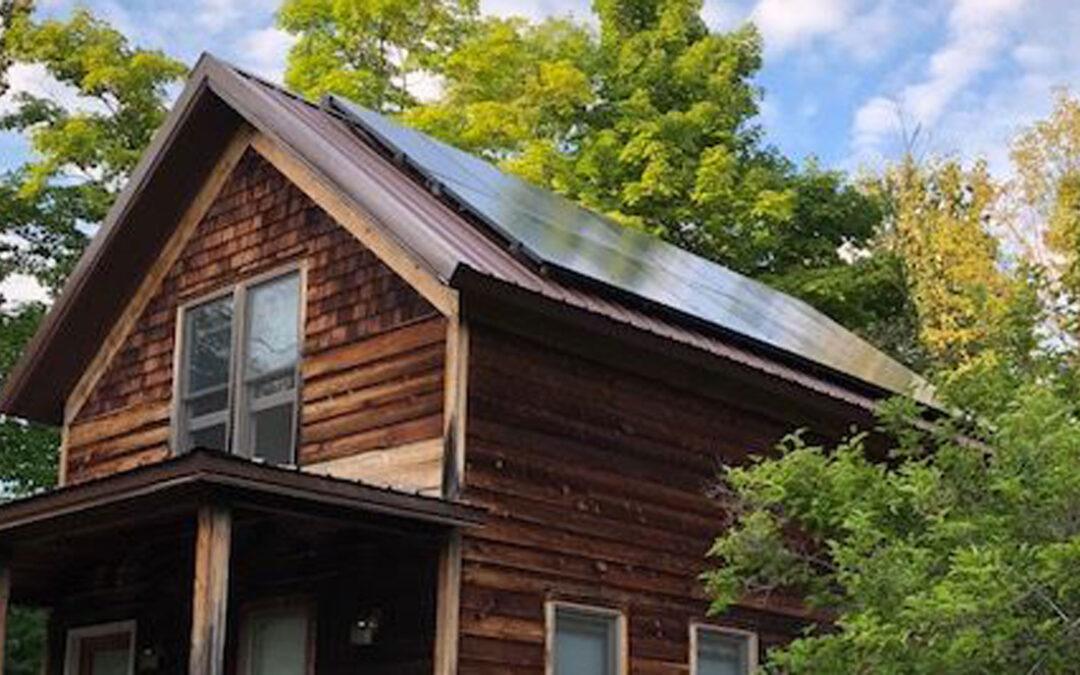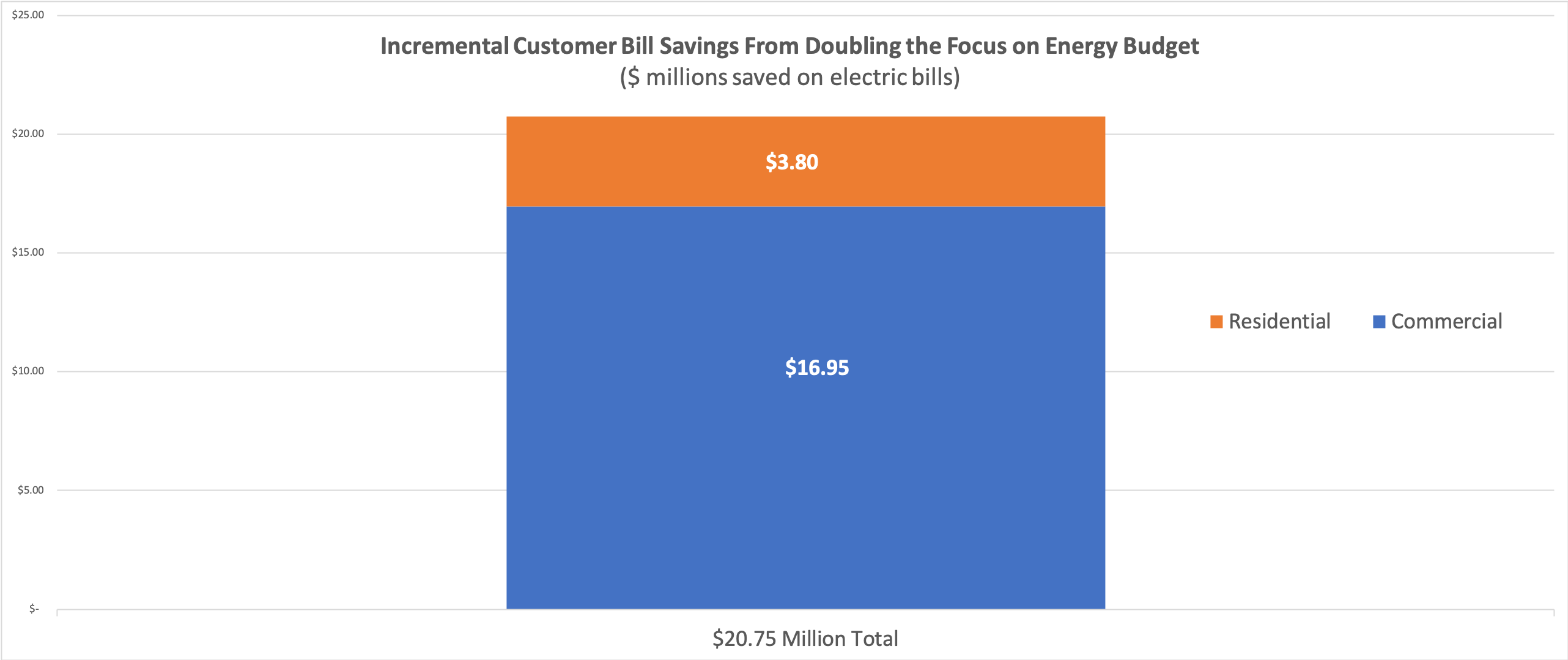Guest Blog by Andy Phelps
Andy Phelps is a local philanthropist who believes in electric vehicles. Recently, he and his family took a trip Up North with their all-electric Chevy Bolt. Continue reading to learn how Andy and his family overcame range anxiety and found charging stations on their trip.
A road trip in an EV? “Someday!” I’ve always said. We love our EV and use it every day, but until now I’ve always assumed that if I took off on a thousand-mile trip, my old gasoline-eating station wagon would be the practical way to go. I know that some folks plan trips from one “destination charger” to the next, but what about my Chevy Bolt? Could we use it for a serious itinerary, with places to go and things to do?
My sister-in-law is a serious photographer, so when she came to visit Wisconsin, we loaded up our car for a meticulously planned trip around the state. We figured we’d use our old Volvo wagon, of course, and weighed it down with suitcases, cooler, lawn chairs, and a giant bag of photography equipment. So four of us — my sister-in-law, my wife, my adult daughter, and I — embarked on our adventure.
And got exactly half a block.
With “Brake Failure” displaying on Volvo’s dashboard, we faced a dilemma. Our first destination, a Clydesdale farm, had pre-paid tickets and an inflexible start time. Switch to renting a car? Unlikely to still be able to make our first deadline. Take the trip anyway in a car that’s claiming “brake failure”? My wife seemed to think that was an unwise way to start a thousand-mile journey.
So, we packed everything into the EV.
First victory: It fit! Well, we downsized to a smaller cooler. But I was astounded that our Bolt carried about as much gear as our gas-eater. Plus, we added the level-1 charge cord and threw in an extension cord for luck. I guess the cargo area goes deep since there’s no gas tank underneath it.
But now, the enormity of it: Start a trip in an EV, when we hadn’t pre-planned charger locations or anything? We decided to just take off and go, and think about that once we were on the road.
We didn’t even start with a “full tank”. We regularly use the car’s “hilltop reserve” setting, which only charges to the 90% point. But we knew that our first destination was within range, and we had pre-paid tickets and a deadline and off we went. Someone driving, someone navigating, and someone googling “best apps for finding EV chargers”. PlugShare and others were soon downloading as we drove. We were also soon experimenting with searching Google Maps for chargers, something I hadn’t even known about. (Not every app shows every charger!)
We actually made it with lots of time to spare, so we had a little picnic by the side of a pleasant country road before the start of our visit. We were happy we’d still had room for those folding chairs! I’m pleased that weighing down the car with four people and all that luggage doesn’t hurt our mileage. The mile-per-kilowatt-hour number depends on speed and wind and whether or not the windows are down, but, unlike a gas car, it does not really depend on how heavy we are! We stayed above 4 miles per kWh, here and on most of the trip.
Unsurprisingly, there are no level 2 chargers at the horse farm, and as we left after our tour, we planned our next move. Overall, our first day’s driving would total 167 miles, which we could probably make on our remaining charge (despite starting without a full battery). But we realized that we might not be able to get any charge that night, so we wanted some extra juice so we wouldn’t arrive empty. Luckily, there are level 3 chargers in Appleton, not at all off our route to Brillion, Wisconsin. While much of northern Wisconsin is a vast desert in terms of DC fast chargers we could use, Appleton turns out to have two of them. We found our way to the back of a Bergstrom auto dealership, plugged in, and relaxed at a beautiful pond and fountain that the dealership had installed.
Level 1, 2, and 3 chargers all have their uses! All were indispensable on this trip.
So, how long to stay charging in Appleton? There was no need to try to fill up all the way, and also, fast chargers slow down as you get over 80% full. Getting to Collins Marsh and then back to our hotel in Brillion wouldn’t require that much additional charge. But with no level 2 or 3 chargers in Brillion and more miles to go the next day, we didn’t want to roll into Brillion on an empty battery. So, taking advantage of the DC charger while we were there, we stayed for over an hour.
(We got a cheery text from our other daughter — “Have fun in Appleton!” Turns out my phone was logged into her ChargePoint account. No worries; she’ll bill me for it.) 🙂
The price of the charger went up after the first hour, from $6 an hour to $25 an hour. We considered moving to Appleton’s other DC fast charger after the first hour but decided that we weren’t breaking the bank with another few minutes at the higher rate. We actually ended up with a total of an hour and a half, adding what the car claimed would be another 100 miles of range.
Then, bidding farewell to our shady rest stop at the pond, we headed on toward Collins Marsh and Brillion.
A lot of our driving this trip was at 55 or 60 mph on scenic rural highways, but part was on 70 mph interstates. It turns out that the allure of speed is a bad idea. Since EVs are so efficient in other ways, wind resistance is a big part of the energy used, and the energy loss from wind resistance goes up disproportionately. Going from 55 mph to 70 mph can lose you a third of your range! And in situations where you have to periodically recharge, any time you gained by zipping along at 70 is just lost again taking longer at a charger. So, my compromise: I set the cruise at 62 mph, and was happy with the range and the speed.
And, keep the windows up! We did some experiments as we went, and it was striking to see that it was much more efficient on the highway to roll up the windows and use air conditioning than it was to roll down the windows and become un-aerodynamic.
We arrived at our hotel that night with charge to spare, but still a long way from full. We cast our eyes around outside of our hotel, and sure enough, there was an ordinary electrical outlet on a light post. We asked at the office and were told sure, we could plugin. A level 1 charge isn’t fast, but overnight, definitely worth it.
There are two speeds for level 1 charge in a Bolt: 8-amp and 12-amp. Not knowing what all other loads might be on the circuit, we went for the default 8-amp setting. This adds roughly 4 miles of range per hour of charge. After our overnight stay, our car claimed it was up to 60% charged, and 138 miles of range.
This “miles of range” display bothers me. Of course, no one knows how far I can go on a given charge since it depends on speed and weather and wind and mountains and everything else. For example, if I’d been puttering around town at low speeds, but then I were about to start a trip on a freeway, its estimate will be way off, and I know better than the car does that my mileage won’t be the same as what I’ve been getting. I wish the car would also tell me just how much charge it has in the battery. It does have a bar graph, but it’s pretty coarse, and only increments every 5% (i.e. 3 kWh), and even then doesn’t always update exactly when it ought to.
If you start with a full charge, you can use the “kWh used since last full charge” display, which gives you a much clearer view of the car’s idea of its charge level (showing every 0.1 kWh). But once you start doing partial charges, this becomes much less useful, and it’s back to the bar graph.
Day 2: Brillion to Door County. This is a total of 94 miles, plus a few small side trips. We went first to Sturgeon Bay, where we went to a visitor’s center, the Maritime Museum, the ship canal and lighthouses, and lunch. The visitor’s center had a free level 2 charger, and so did downtown Sturgeon Bay, where we picked up a nice 25 miles of bonus range. That’s an EV-welcoming city!
Then, on to Sister Bay. We stayed for four nights at a vacation home, using it as a base for smaller trips around the area. The extension cord we brought along came in handy, and we could plug in from the front porch of the villa. Should we use 8 or 12 amps? While it seemed fine for 12 (no other loads on the front-porch circuit), I figured 8 was sufficient given how long we’d be there. Each night we’d gain 50 miles or so, and each day we’d spend some of them on trips to neighboring towns. We didn’t seek out any level 2 chargers there, though we did grab some free charge at a nature center, just because it was right there. On our last night, I went ahead and set the level 1 charge to 12 amps so we’d finally get all the way to a full charge by the time we left in the morning.
So the morning of Day 6 was the first time that entire trip (even the beginning) where we were at 100% charge! Good thing, since we had some miles to drive.
We were now headed to the other side of the state. Our itinerary had two days planned: Sister Bay to Wausau, which is 170 miles, then Wausau to Bayfield, another 191 miles. We picked a spot for a lunch stop where we could park at a level 2 charger. But still, we knew we’d like a full recharge in Wausau, so we switched hotels (the only change we made to our itinerary) to a hotel that was across the street from a charger. If we’d needed to, we could have left the car at the charger all night, but actually, by bedtime, we had already completely charged our battery.
Day 7, on to Bayfield. We could have made it on one charge at a pinch, but we didn’t want to arrive on empty. We were going through a town where Harley-Davidson had installed a charger, so we added a bit of charge there while we visited a church service that happened to be going on across the street. Later that day, we found a charger in downtown Ironwood to park at while we ate lunch at a Chinese restaurant. So all in all we arrived at Bayfield with almost half a charge left.
At our cottage in Bayfield, we were pleasantly surprised to find a dedicated 20-amp outlet right next to where we parked our car, so we got a 12-amp charge all night for both nights we were there. Still, level 1 being what it is, we weren’t going to get quite a full charge that way, so we bought ourselves some ice cream and enjoyed a break at a nearby retreat center, sitting at a level 2 charger. A little math says that 30 minutes of 7.6 kilowatts of level 2 charge saves you over 2 1/2 hours of 1.5 kilowatts from a 12-amp level 1 charge, so we knew we’d be able to finish our charge overnight and be able to get an early start in the morning.
When doing the math to figure out charge times, it’s pretty easy to get an approximate number of how long it will take. A basic level 1 charge is 1 kW, so in an hour, that will add 1 kW-hour to the battery. Almost. Actually, I figure something like 90% of what goes in actually stays in, so it’s best to figure on adding 10% slop. So say I wanted to add another quarter of a ‘tank’, and I wanted to know how long I’d need to charge. On a Bolt a full ‘tank’ is 60 kW-hours, so a quarter of that is 15 kW-hours. Using a 7.6 kW Level 2 charger, I’d divide 15 by 7.6 to get approximately 2 hours of charging time. It will take a little longer because of the aforementioned slop, and it will also take longer if you’re trying to charge the battery to the top because the charging slows down when the battery gets close to full. (And why won’t the car just tell me when it’s added 15 kWh? Only on level 3 chargers does it give me a running commentary on how much is in the battery).
| Type of charge |
kilowatts (kW) |
Charge added per hour (assuming 10% overhead) |
Miles of range added per hour
(assume 4 miles per kWh)
|
|
Level 1
(120 volts)
|
1.0
(using the 8 amp setting)
|
0.9 kWh |
3½ miles |
|
1.5
(using the 12 amp setting)
|
1.4 kWh |
5½ miles |
|
Level 2
(240 volts)
|
7
(some typical chargers)
|
6.3 kWh |
25 miles |
|
7.6
(max level 2 my Bolt will take)
|
6.8 kWh |
27 miles |
|
Level 3
(DC fast charge)
|
25
(many slower level 3 chargers)
|
22½ kWh |
90 miles |
|
55
(max level 3 my Bolt will take)
|
50 kWh
(but only until it starts to slow down)
|
180 miles
(but only until it starts to slow down)
|
Day 9: Drive to Duluth, including scenic byways. Up to 180 miles were planned for this day, so it’s good we had a full charge. We grabbed some level 2 charge at the Lake Superior Railroad Museum. (Thanks to my daughter who persevered in figuring out how to navigate the downtown streets to get there; Google Maps had failed me.) When we got to the hotel that night, we were pleasantly surprised by electrical outlets by a dozen or so of the parking spaces. I suppose they had actually intended them for engine block heaters. After our several hours at the railroad museum plus our overnight at 12-amp level 1, we were fully charged again.
Day 10: Drive to Eau Claire. 157 miles. And with another long drive the next day, we were pleased to see that Eau Claire has a level 3 charger — in fact a whole bevy of them at Walmart. I’m not always a huge Walmart person but in EV charging they are outstanding — not a wimpy 25 kW level 3 charger like we’ve sometimes used, not even a 50 kW which pretty much is all a Bolt will take, but 350 kW! We charged at 50 kW up to where it was 80% full (where the charge is slowing down) and spent the night at a hotel without bothering to hunt for outlets. The next day we drove around to some local destinations, so we then charged back up to 80% at the same Walmart again before the drive home.
Back to Madison! We went a total of 1319 miles. If we had taken our Volvo, which gets 24 mpg, that would have been 55 gallons of mid-grade gasoline, which would have cost $176. As it was, the cost of electricity was only $23 ($21 of that in Appleton). Most of the chargers were free.
You’d think we’d be done, but actually, we only had a couple of days to regroup before we headed off to our last destination — relaxing at a cabin on a lake outside of Eagle River, Wisconsin. It’s unlikely we could have gotten the Volvo’s brakes fixed in that short gap, even if we had wanted to, but actually at this point, we had no desire to switch back to our dinosaur-juice-burning ICE-car. (It’s so last century!)
So we headed north again, first to a visit in Keshena, and then on to Eagle River. Once again we needed to pick up a little charge on the way, and, lo and behold, Appleton was on our path again, and we got to visit that nice pond and fountain for another driving break. We calculated how much charge we needed to arrive with a 15% (9 kWh) buffer, and indeed, as we drove to our destination (after a diversion in search of a Dairy Queen) the dashboard was starting to show an orange warning message that indeed we were right about at that mark.
The cabin by the lake had no level 2 charger (though I hear they’re going to put one in!). I’d thought it would be easy to just plug into the cabin, but it had no outside outlets, and the screens on the windows were important to leave in place as mosquito defense. But there was a well-house with a nice outlet good for a 12-amp charge, and my extension cord came in handy again. (My extension cord is thin enough it gets a little warm with 12 amps, but not warm enough to worry me as long as it wasn’t bunched up or confined.)
Moving the car to be closer to the well house, off-roading through the rain-soaked leaves, I miscalculated and got the car stuck in the mud, spinning its wheels. Luckily a shovel was handy, and some friendly folks from adjacent cabins helped me push the Bolt back to solid ground.
I’d thought it would be a piece a cake to charge up when we were staying six nights in one place, but between day trips, and a whole series of thunderstorms (it seemed a bad idea to be plugged in outside during a north-woods thunderstorm), it wasn’t until the last night that we got back to a completely full charge.
Going back to Madison involved a long enough trip that we stopped for lunch and a hike in Wausau since we already knew about the free level 2 charger across from the last trip’s hotel.
We rolled into our driveway fairly low but not showing any orange warnings. It was good to be back to where I can plug in every night in my own garage. But I was pleased to know that I can travel around the state in my EV whenever I please.
Some final thoughts
Traveling with an electric car is a little like traveling with a dog. It can be fun, but you do have to think about it. If you’re going to stop for a break and some refreshment, is your dog (or your car) also going to get its needs met as well? Are you spending the night somewhere that’s friendly to your dog or your car?
Not everyone is into this. Someone recently compared it to being “an early explorer in the Sahara, trying to rely on sketchy maps to find enough watering holes to stay alive, never knowing if the next water is dried up, or poisonous, or not really there at all”. My own experience was positive, but it also helped that I was biased toward a spirit of adventure.
I look forward to the day when every place that one can spend the night has level 2 chargers for an overnight fill-up. Whether you’re a hotel or a vacation rental or a campground, please, just put in a level 2 charger (or two or three) — it’s not that expensive. For now, the hard part for the driver is figuring out not only how to make it to the next destination, but to be prepared to begin the next day’s journey as well when you may not have gotten an overnight charge.
The world is already changing, and chargers are getting easier to find. New EVs have longer ranges and faster charging times. In some ways, Europe is ahead, with level 2 chargers that are three times the power of what I was using! Businesses are catching on, investments are being made. It won’t be long before a trip like mine will hardly be an adventure at all.
